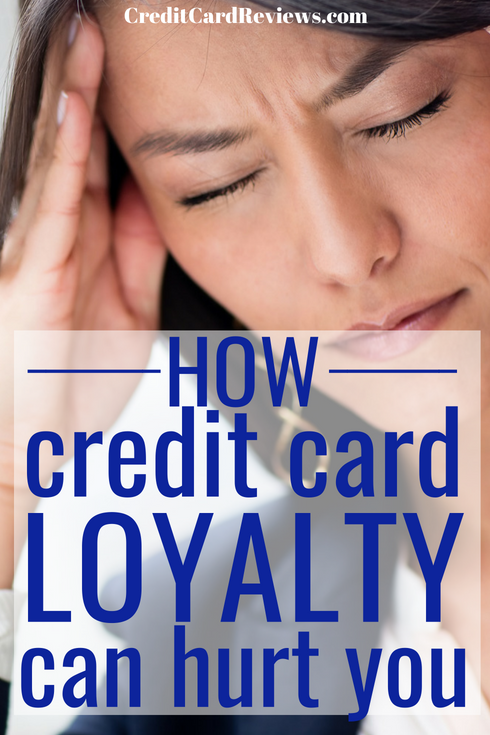Now, let me start by saying that I have nothing against loyalty; in fact, I value it in almost every area of my life. When it comes to credit cards, though, being too loyal can cost you quite a bit. While there are certainly reasons to stay committed to a particular card product or issuer, for the most part, it actually pays to be disloyal. Here are a few ways that credit card loyalty can be a bad thing.
You’ll miss out on bonuses. One of the best things about getting a new credit card is the opportunity to earn a sign-up bonus. These introductory offers can pad your account with points, miles, or even statement credits right off the bat, often only requiring a reasonable minimum spend. Depending on the card product and the bonus you snag, you could easily snag a bonus worth hundreds of dollars. After all, bonuses are higher than ever!
Being loyal to the same old credit card, especially if you’re unwilling to sign up for anything new, means that you miss out on these excellent incentives.
You’ll miss out on 0% offers. New cardholders are often lured in to credit card products by the promise of interest-free offers. These promotions promise to allow customers the ability to make purchases or transfer balances, then pay off the account without any interest. The time period varies, but can easily be 18-24 months or more. Right now for example, the best 0% credit card is the US Bank Platinum Visa which boasts a 20 month no interest period.
This makes these offers ideal when you have a big purchase to make – such as new furniture or an exciting vacation – but don’t want to pay in full up front. You have the ability to stretch out your repayment without incurring any interest charges. And 0% loans are pretty hard to come by.
Of course, these offers are almost always limited to new cardholders. It’s highly unlikely that your trust ol’ card is willing to offer you 0% on purchases or balance transfers, meaning that you’ll need to pay for all of your purchases in full (or spend more in interest).
You’ll miss out on maximum rewards. Most of us understand the value of a rewards-earning credit card. Getting free money, by recouping 1% or more on the things you buy anyway, is exciting. Who wouldn’t take advantage of that? However, there are ways to really maximize your rewards-earning potential. By sticking with the same card, you might be limiting yourself and leaving hundreds of dollars on the table each year.
For instance, if you have a credit card that offers you 1.5% back on every dollar you spend, you’re probably earning a nice reward each year. What if you were to also cycle in a credit card that gives 6% back on all grocery purchases, though, as well as one with rotating 5% categories for gas and dining? By simply adding another credit card or two to your wallet, you can earn double, triple, or more points on many of your big spending categories.
You’ll miss out on industry changes. Credit cards change all the time, along with industry trends. Issuers are adding exciting features to their existing products, and new credit cards are being introduced all the time. If you’re sitting back with that same credit card you’ve had since college, you could be missing out on a lot.
Take my first credit card, for instance. I got it when I was 18 and built up a decade and a half of a solid credit history; I was happy enough and had no plans to stop using the card. However, once I started writing about personal finance and learning more about credit cards, I stepped back and wondered what on earth I was doing. My old card had a long, positive history, sure… but it also charged me an annual fee, didn’t offer any rewards, and had no protections like price matching, lost baggage coverage, or even an extended warranty.
I was paying good money each year for a card that offered me nothing in return. So, while I had been loyal to that card for 15 years and didn’t want to see it drop off my credit report, I closed it. Then, I opened up a Chase Sapphire Preferred and a Citi Double Cash in its place (and earned over $1,000 in rewards last year alone).
Loyalty is typically a good thing, and one I would encourage. If that loyalty is to a credit card that isn’t offering you enough, though, you may want to rethink your strategy. By opening additional accounts to maximize earnings, or even closing a long-standing account that is costing you money, you will do your wallet a favor. And that’s where your loyalty should really lie.

